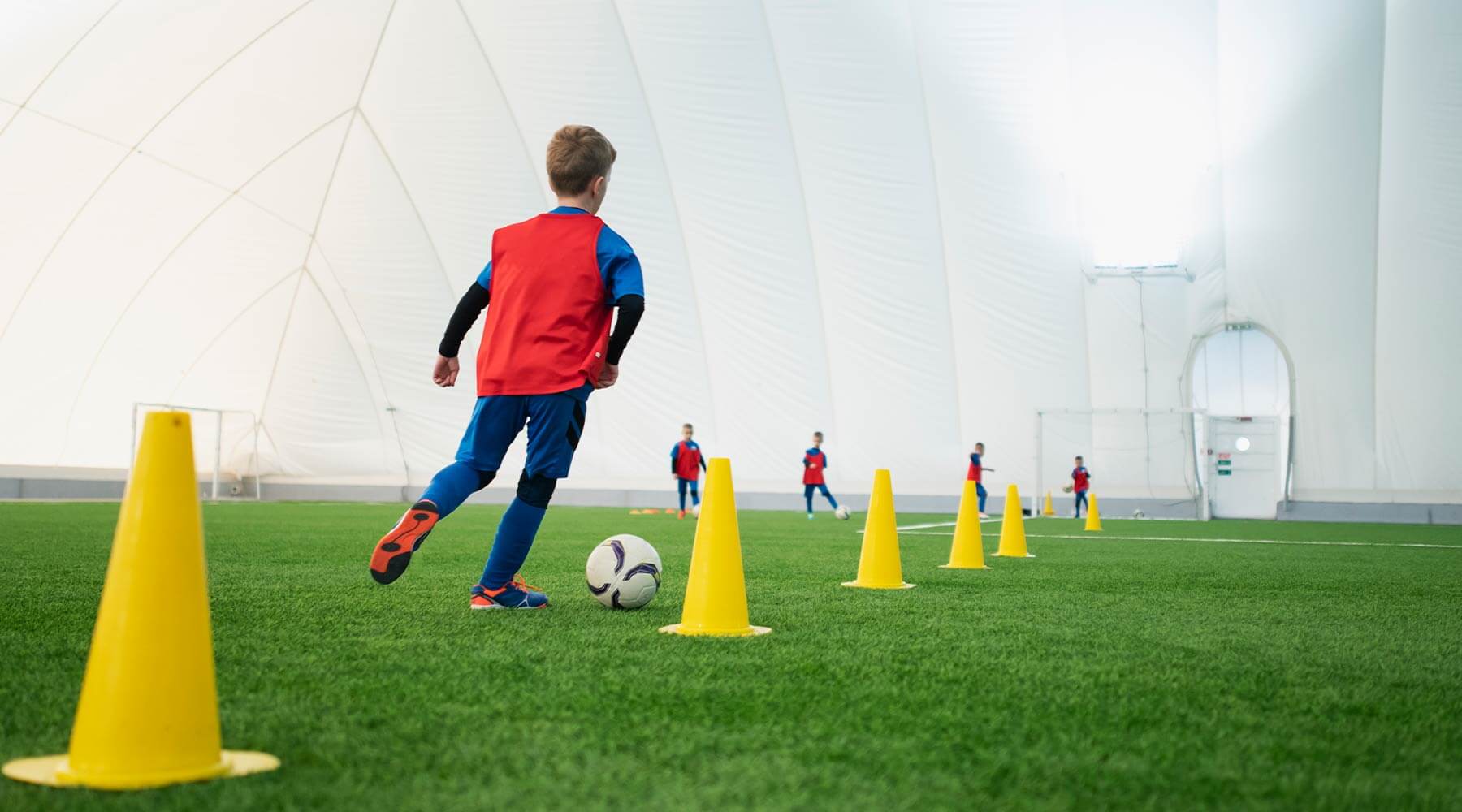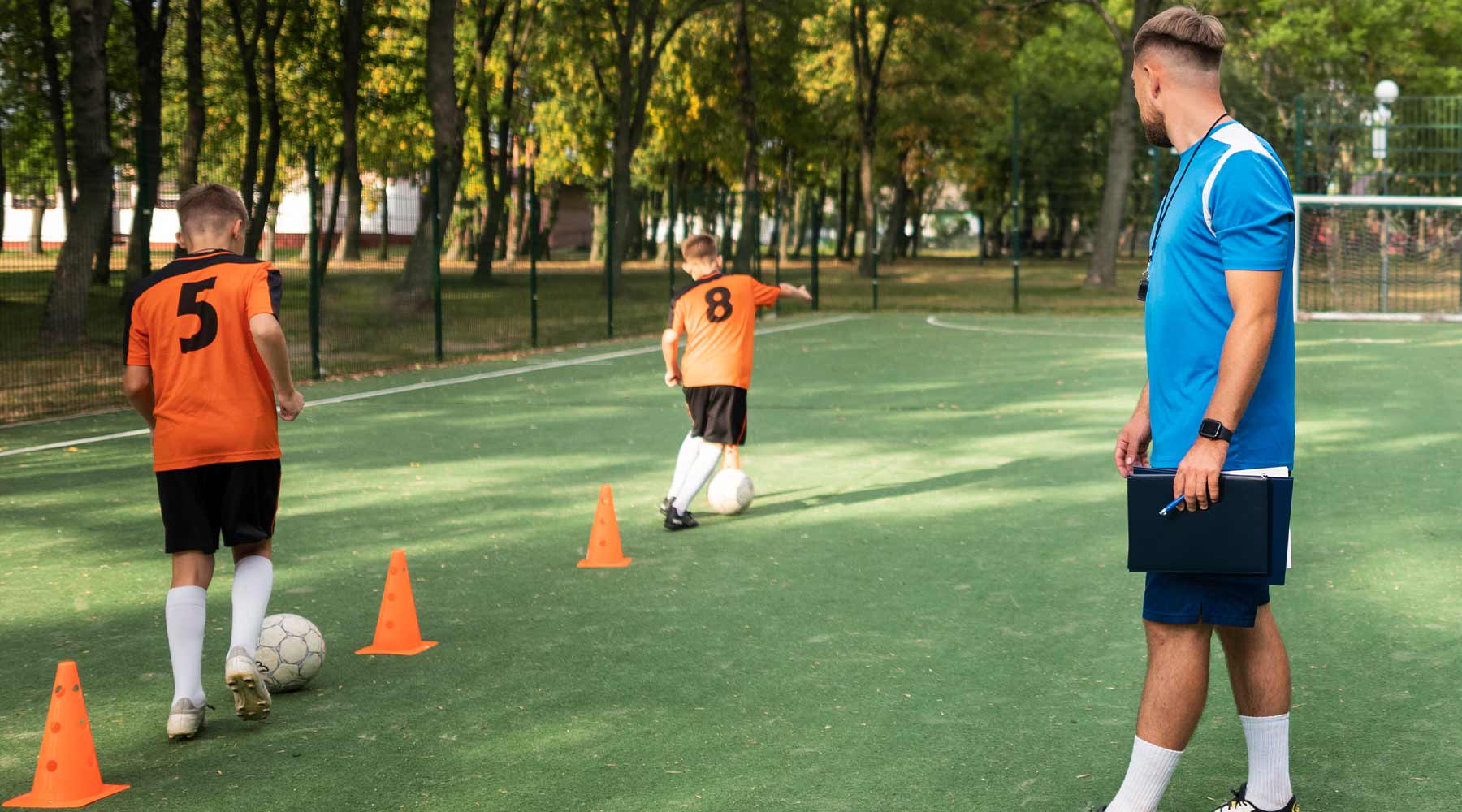CRFC BLOGS
LATEST BLOGS & NEWSLETTERS
10 Essential Soccer Dribbling Drills for Youth and Beginners
1. Cone Weaving Drill: Enhancing Control and Agility

2. Circle Drill: Developing Balance and Control

3. Figure 8 Drill: Improving Agility and Comfort with the Ball
4. Cone Slalom Drill: Precision and Effective Use of Both Feet

5. Square Drill: Sharp Turns and Controlled Movement
Create a square using cones and have players dribble around the perimeter, making turns at each corner. This drill refines the skill of dribbling under control and making sharp turns, essential for evading opponents during a game. Players gradually develop the muscle memory required to make precise turns at varying speeds.
6. Mirror Drill: Enhancing Ball Control and Awareness
Pair up players and designate one as the leader and the other as the follower. The leader dribbles in various directions, and the follower mimics their movements, attempting to stay close. This drill is instrumental in improving both ball control and awareness, as players learn to read the movements of their teammates and opponents alike.
7. Cone Stop-and-Go Drill: Acceleration, Deceleration, and Control
Place cones in a straight line, and at each cone, players must perform a quick stop-and-go before moving to the next one. This drill helps improve acceleration and deceleration while maintaining control over the ball. It simulates scenarios in a game where players need to change pace rapidly, contributing to their overall agility on the field.
8. Dribble and Pass Drill: Integrating Dribbling and Passing Skills
Set up two lines of players facing each other at a distance. Players take turns dribbling towards each other, passing the ball, and then running to the back of the opposite line. This drill seamlessly integrates dribbling and passing skills in a game-like scenario, emphasizing the importance of quick decision-making and ball control under slight pressure.
9. Pressure Drill: Simulating Real-Game Scenarios
Create a grid with cones and designate a defender. The player with the ball aims to dribble through the grid while the defender tries to stop them. This drill simulates real-game pressure, enhancing the player’s ability to protect the ball under challenging circumstances. It also helps build confidence and composure during one-on-one situations. Practicing under pressure is a common focus in charlotte summer soccer camps, preparing players for competitive match situations.
10. Dribble Race Drill: Adding Speed and Endurance
Arrange players in a line, each with a ball. On the coach’s signal, players dribble to a designated point and back. This competitive drill not only enhances dribbling skills but also adds an element of speed and endurance. It encourages players to push their limits and improves their ability to control the ball at higher speeds.

Conclusion
Mastering soccer dribbling is a foundational step for youth and beginners in their soccer journey. These ten effective dribbling drills provide a structured approach to skill development, focusing on various aspects such as control, agility, balance, and decision-making. Consistent practice of these drills is essential for improvement. If you’re looking to elevate your soccer skills, explore our guide on soccer shooting drills for youth to complement your dribbling expertise.
FAQs
How can I improve my dribbling in soccer?
You can improve dribbling by practicing drills that focus on ball control, agility, and quick changes of direction. Work on mastering moves like the inside cut, outside cut, and step-over to enhance your dribbling skills effectively.
How can I practice dribbling?
Practice dribbling by setting up cones or markers and navigating through them with the ball using various dribbling techniques. Focus on keeping the ball close to your feet, using both feet equally, and maintaining control at different speeds.
How to dribble fast?
To dribble fast, focus on using short, quick touches on the ball while maintaining control. Keep your body low to the ground, use your arms for balance, and push off explosively with each step to increase your speed while dribbling.
What are the 3 fundamentals of dribbling?
The three fundamentals of dribbling are control, speed, and the ability to change direction quickly. Mastering these fundamentals through drills and practice sessions will enhance your overall dribbling ability on the field.
What is a successful dribble?
A successful dribble is one where you effectively maintain control of the ball while maneuvering past opponents. It allows you to retain possession, create scoring opportunities, and contribute positively to your team’s performance.

Did you find this useful?


